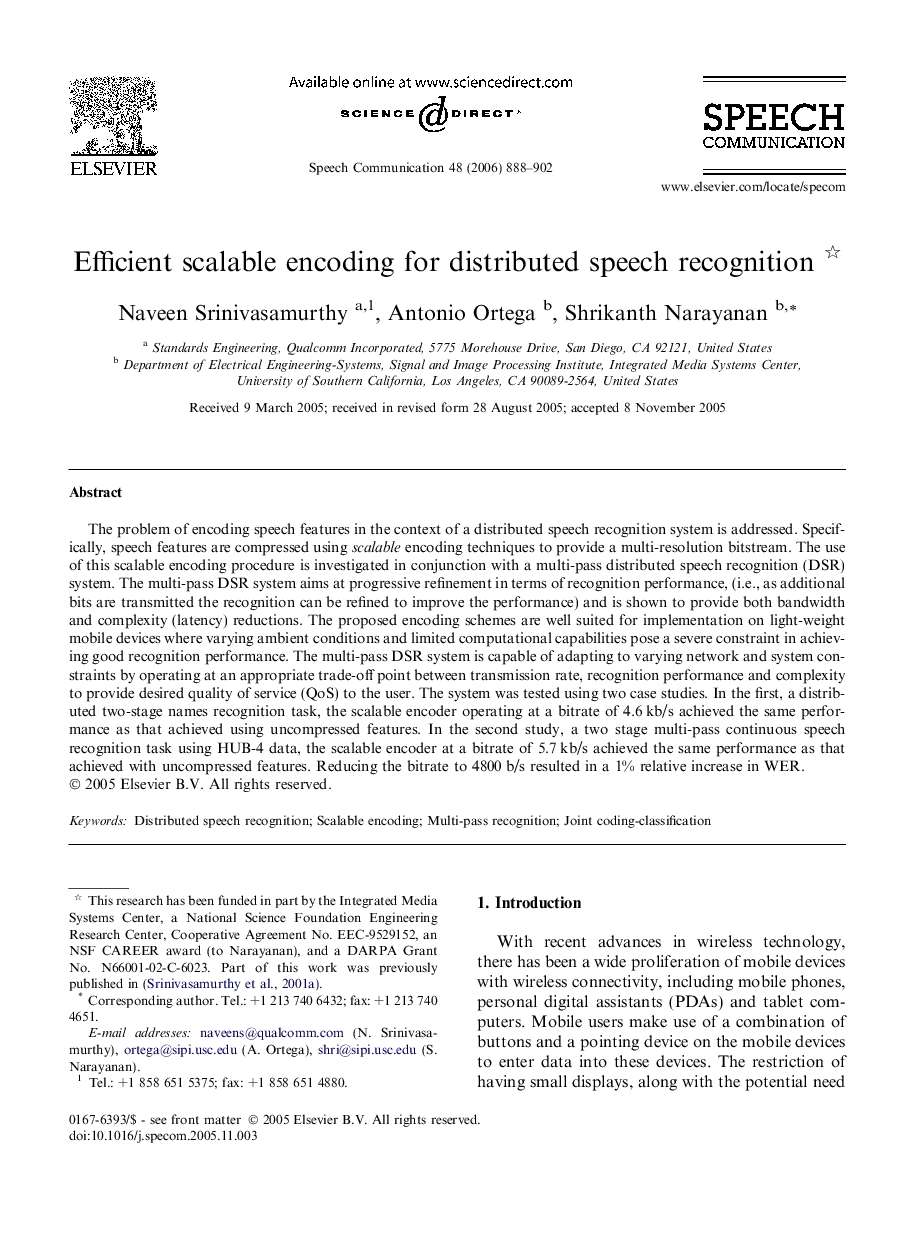| Article ID | Journal | Published Year | Pages | File Type |
|---|---|---|---|---|
| 568996 | Speech Communication | 2006 | 15 Pages |
The problem of encoding speech features in the context of a distributed speech recognition system is addressed. Specifically, speech features are compressed using scalable encoding techniques to provide a multi-resolution bitstream. The use of this scalable encoding procedure is investigated in conjunction with a multi-pass distributed speech recognition (DSR) system. The multi-pass DSR system aims at progressive refinement in terms of recognition performance, (i.e., as additional bits are transmitted the recognition can be refined to improve the performance) and is shown to provide both bandwidth and complexity (latency) reductions. The proposed encoding schemes are well suited for implementation on light-weight mobile devices where varying ambient conditions and limited computational capabilities pose a severe constraint in achieving good recognition performance. The multi-pass DSR system is capable of adapting to varying network and system constraints by operating at an appropriate trade-off point between transmission rate, recognition performance and complexity to provide desired quality of service (QoS) to the user. The system was tested using two case studies. In the first, a distributed two-stage names recognition task, the scalable encoder operating at a bitrate of 4.6 kb/s achieved the same performance as that achieved using uncompressed features. In the second study, a two stage multi-pass continuous speech recognition task using HUB-4 data, the scalable encoder at a bitrate of 5.7 kb/s achieved the same performance as that achieved with uncompressed features. Reducing the bitrate to 4800 b/s resulted in a 1% relative increase in WER.
